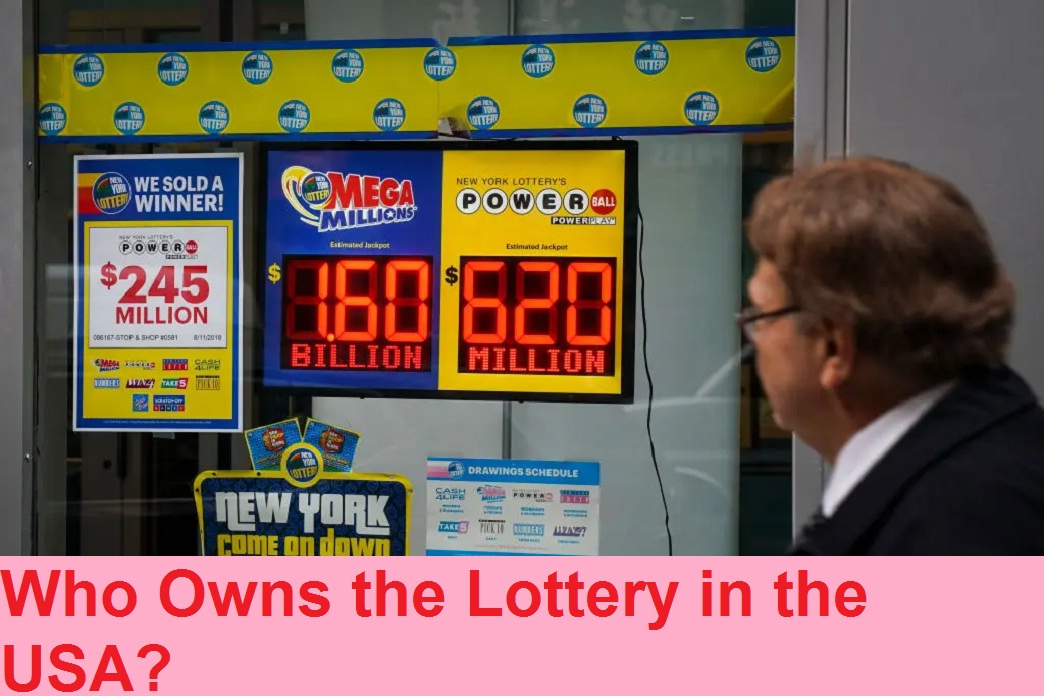Contents
Who Owns the Lottery in the USA?
Lotteries in the USA have captured the imagination of millions, offering the chance to turn dreams into reality with life-changing jackpots. But have you ever wondered who owns these grand lotteries? In this article, we will delve into the depths of the lottery industry, exploring the key players responsible for the enchanting world of fortunes and examining the history, regulations, and frequently asked questions about the ownership of lotteries in the USA.
Who Owns the Lottery in the USA?
The ownership of lotteries in the USA is a complex web involving various entities, both public and private. Let’s explore the main stakeholders:
1. State Governments
The majority of lotteries in the USA are owned and operated by state governments. Each state runs its own lottery, and the proceeds are often used to fund public programs, education, infrastructure, and social initiatives.
2. Multi-State Lottery Associations
Several lotteries operate across state lines, forming multi-state lottery associations. Examples include Powerball and Mega Millions, which pool resources from multiple states, resulting in gigantic jackpots.
3. Private Companies
In some cases, private companies collaborate with state governments to manage lotteries on their behalf. These companies are usually awarded contracts through a competitive bidding process.
4. Native American Tribes
Certain Native American tribes have established their own lotteries on tribal lands, under the Indian Gaming Regulatory Act, generating revenue for their communities.
The History of Lotteries in the USA
The concept of lotteries in the USA dates back to the early colonial days. Let’s take a journey through time to understand their evolution:
Colonial Era
During the colonial era, the first recorded lottery in the USA was conducted to fund the construction of Harvard College in 1638. Subsequently, other colonies followed suit, using lotteries to finance public projects.
19th Century
Lotteries became more widespread during the 19th century, contributing to the development of infrastructure, including roads, bridges, and schools. However, due to concerns about corruption and fraud, many states banned lotteries during this period.
20th Century
In the early 20th century, lotteries largely disappeared from the American landscape. It was only in the 1960s that New Hampshire reintroduced the modern state lottery, inspiring other states to follow suit.
Modern Era
The late 20th and early 21st centuries witnessed the rapid growth of lotteries in the USA. The formation of multi-state lotteries, such as Powerball and Mega Millions, led to unprecedented jackpots, capturing the nation’s attention.
Regulations Governing Lottery Ownership
The ownership and operation of lotteries are subject to a strict set of regulations to ensure fairness, transparency, and responsible gaming. The regulatory framework includes:
1. State Laws and Regulations
Each state has its own laws and regulations that govern the establishment and operation of lotteries within its borders. These laws outline the allocation of funds, prize claim procedures, and the percentage of revenue directed toward public programs.
2. Federal Oversight
While state governments primarily oversee lotteries, the federal government provides a layer of supervision to ensure compliance with federal laws and regulations.
3. Consumer Protection Measures
To safeguard players, lotteries implement various consumer protection measures, such as age verification, responsible gaming programs, and prize claim security.
Conclusion
The lottery industry in the USA is a captivating world of hopes and dreams, owned by a combination of state governments, private companies, and Native American tribes. From its humble beginnings in the colonial era to the multi-state mega jackpots of today, lotteries have evolved significantly, shaping the landscape of America’s fortune pursuits. With strict regulations in place to ensure fairness and responsible gaming, the lottery continues to hold a special place in the hearts of millions of Americans.
Unlocking the mystery of who owns the lottery in the USA sheds light on the remarkable collaboration between governments, businesses, and tribes, all striving to make dreams come true through the magic of a winning ticket.
FAQs: Who Owns the Lottery in the USA?
Q: Who was the first lottery winner in the USA?
A: The identity of the first lottery winner in the USA is not well-documented due to the ancient origins of lotteries. However, in the modern era, many notable winners have become public figures, sharing their stories with the world.
Q: Can lottery winners remain anonymous?
A: The rules regarding anonymity for lottery winners vary by state. Some states allow winners to remain anonymous, while others require public disclosure of their identities.
Q: How are lottery funds utilized by state governments?
A: Lottery proceeds are used for various purposes, such as education funding, infrastructure development, public welfare, and community programs.
Q: What are the odds of winning the lottery?
A: The odds of winning the lottery vary depending on the specific game being played. Generally, the chances of winning the jackpot are quite low, making it a rare and exciting event for lucky players.
Q: Can non-US citizens participate in US lotteries?
A: In most cases, only US citizens or residents are allowed to participate in US lotteries. However, certain multi-state lotteries may permit international players to buy tickets.
Q: Do lottery sales increase during economic downturns?
A: Yes, lottery sales often increase during economic downturns as people seek the chance to improve their financial situations and pursue dreams of a better life.

